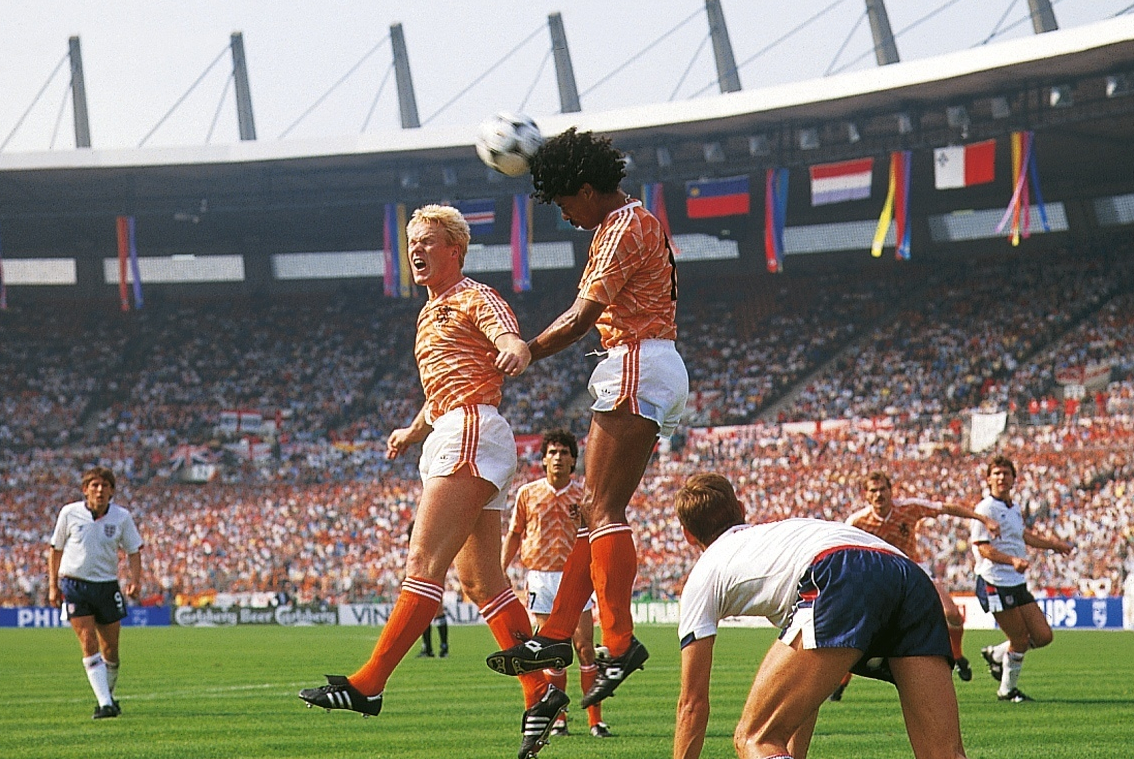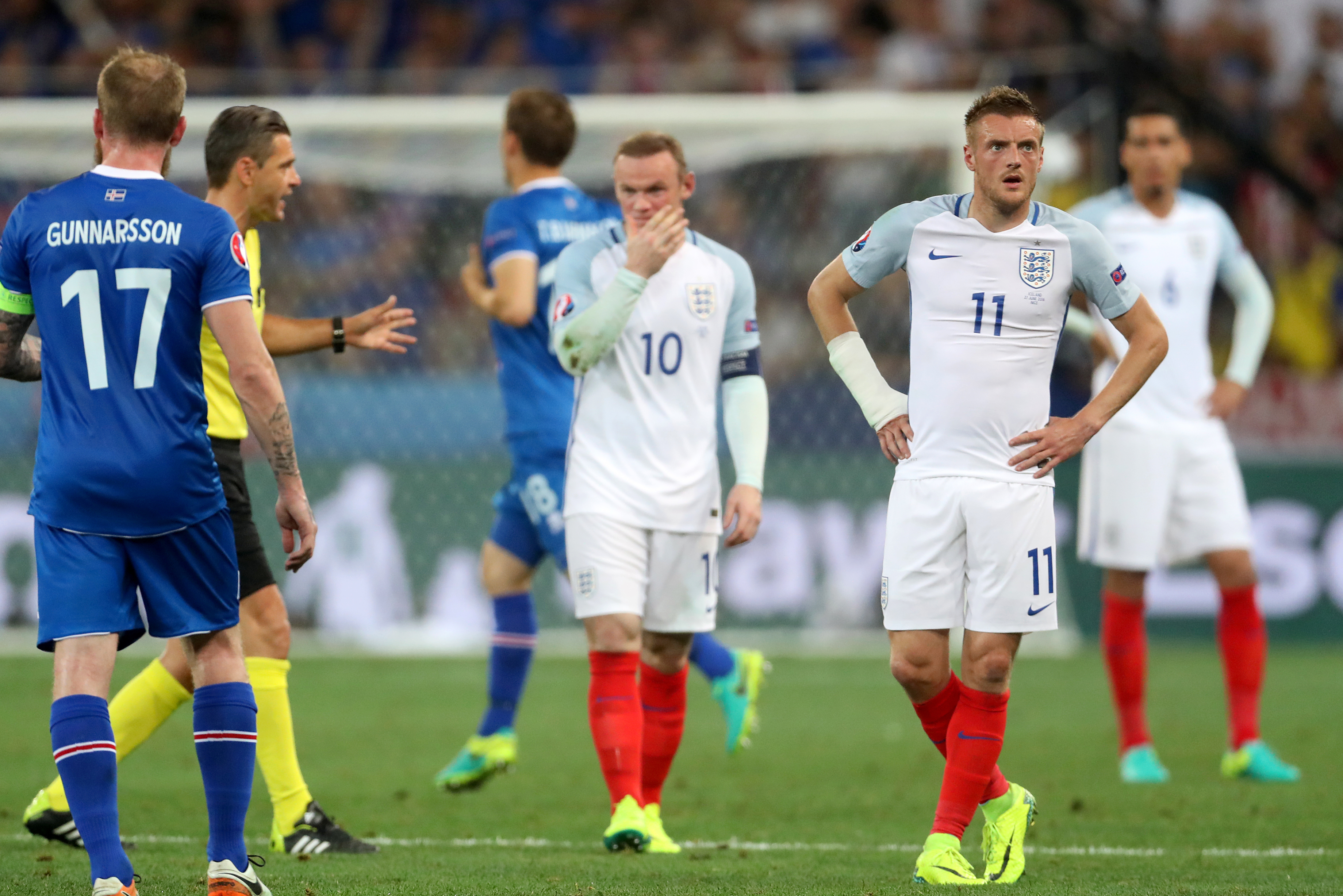Euro 2020 group of death: A history of a dying concept
The Euro 2020 group of death is, supposedly, Group F - but is there still such a thing? FFT looks at the history of the fearsome foursome... and why groups of death are probably over for good

June 23, 2021. Portugal versus France, the 89th minute. Antoine Griezmann slips by two defenders before firing past Rui Patricio to seal a dramatic last-gasp 3-2 victory that gives Les Bleus a place in the last 16 as group winners. Germany will go with them as runners-up, while Portugal – the 2016 winners – will be joining Hungary on the first flight home. Moments after the final whistle, Cristiano Ronaldo & Co trudge off the pitch; in the media mixed zone, there’s one phrase on everybody’s lips. Portugal have just become the group of death’s latest victim.
This is a fictional scenario, of course, but one that could be played out at Euro 2020 this summer. Certainly, these scenarios have claimed many scalps in the past. The forerunner of a now-omnipresent phrase can be traced back to the 1958 World Cup in Sweden. Then, the local press labelled Group Four, with Brazil, England, the Soviet Union and Austria, as ‘Giganernas Kamp’ (‘The Battle of the Giants’). The specific phrase ‘group of death’ was first coined at the 1970 World Cup by a Mexican journalist who dubbed Group Three – with eventual winners Brazil, reigning champions England, 1962 finalists Czechoslovakia and Romania – as the ‘Grupo de la Muerte’.
The phrase was used again in 1982, when the most deadly group in World Cup history made up the second round’s Group C. Only one team would progress from a pool consisting of the defending champions Argentina, favourites Brazil and eventual winners Italy.
The psychological benefits of navigating such a tough group were there for all to see – Italy boss Enzo Bearzot admitted after beating Brazil 3-2 that it “already felt like we were champions”, and a newly free-flowing Azzurri went on to dispose of Poland and West Germany in the semi-finals and final respectively.
The term ‘group of death’ became popularised after the 1986 tournament, when Uruguay boss Omar Borras used it to describe Group E, which included his Celeste side, West Germany, Denmark and Scotland.
“If ever there was a group of death it was that one,” says former Denmark and Liverpool midfielder Jan Molby, who played in all three group matches. “Uruguay were the South American champions at the time, West Germany got to the final in 1982 and still had some amazing players, while Scotland were still really strong. Denmark were written off by everybody because it was the first time we’d qualified for the World Cup, but we went on to win all three of our group matches... and did it in some style.”
That’s an understatement: Denmark edged out Scotland 1-0, before going on to annihilate Uruguay 6-1 and outplay West Germany 2-0. Only Scotland failed to progress from the group.
Get FourFourTwo Newsletter
The best features, fun and footballing quizzes, straight to your inbox every week.
“When the draw was made, I was at a testimonial dinner in Liverpool and a lot of the Scottish lads were there,” says Molby. “I got a phone call, and when I told everyone we had Uruguay, West Germany and Scotland, all the Scottish lads were taking the mickey saying, ‘That’s you getting an early flight home then’. But that really motivated us... and in the end it was Denmark who had the last laugh.”
After any lot of ball-picking for European Championships, World Cups and even the Champions League, it’s become standard practice to attach a Grim Reaper label to one of the groups – one that could kill off the hopes of a genuine giant before the serious stuff even begins.
In truth, however, the World Cup – with its previously convoluted format that often saw three teams get through from a four-team group, and with its expansion from 24 to 32 teams in 1998 – has rarely thrown up a genuine group of death.
In 1990, Group B consisted of defending champions Argentina, Romania, the USSR and Cameroon, but with three teams progressing it was widely expected that the Africans would be eliminated. That the Indomitable Lions got through, though, was more down to the paucity of the USSR’s performances than being drawn in a group of death.
Draws for the biggest international tournaments rarely provide that much excitement, and in 1994, the media were struggling to label one outstanding group. Most observers dubbed Group E – with Italy, the Republic of Ireland, Mexico and Norway – as the group of death, but Brazil coach Carlos Alberto Parreira insisted (perhaps trying to save his job should he fail) that Group B had deathly potential. Given that Cameroon and Russia failed to qualify from the pool, while Brazil and Sweden wound up finishing first and third respectively at the tournament, he might have had a point.
In France four years later, 32 teams contested the finals for the first time. The result? A distinct lack of a group of death, as Spain, Nigeria, Paraguay and Bulgaria made up the toughest of several weak foursomes. A genuine group of death did emerge in 2002, however: when Nigeria and the pre-tournament favourites Argentina were knocked out by England and Sweden, the tag seemed totally justified. The same could be said of 2006, with Argentina, the Netherlands, Serbia and Ivory Coast making up a tricky Group C – but in hindsight, the first two teams qualified with relative ease.
It was a similar story in South Africa in 2010, when Brazil and Portugal made comfortable progress from the so-called group of death and the Ivory Coast were again a disappointment – North Korea were always favourites to take away the wooden spoon. In 2014, though, reigning champions Spain were claimed as genuine victims after a 5-1 battering by the Netherlands preceded a miserable 2-0 loss to Chile; then in 2018, holders Germany finished bottom in the trickiest (but hardly insurmountable) group behind Sweden, Mexico and South Korea.

On the whole, European Championship finals have traditionally been a different matter. From 1980 until 1992, the tournament only included eight teams participating, meaning arguably every group was of a deathly persuasion.
In 1992, Scotland striker Ally McCoist labelled Group B “the group of certain death” because the Tartan Army would be up against Germany, the Netherlands and CIS (formerly the Soviet Union).
England, too, have suffered. “Our group of death was 1988,” says ex-winger Chris Waddle. “We had the Netherlands, who were the best team in the world at the time and went on to win the tournament, the Soviet Union, who got to the final, and the Republic of Ireland was a derby for us. We lost all three matches and only scored once, so that’s about as grim as it gets.”
Waddle believes the fear and doom that surrounds pre-tournament predictions for a group of death is complete nonsense. “In 2002, England had the toughest group in the tournament but they came through it,” he explains. “In 2010, they had one of the easiest with the USA, Algeria and Slovenia, but they only just scraped through. I sometimes think having a tough group can do you a favour because it lowers expectations. You’re up against a team that you know all about because you watch the players on the TV every week. When you get a fairly unknown team, it can sometimes catch you out. Look at Denmark in 1992. They caught everybody by surprise, just like Greece in 2004.”
England hardly need reminding of that, having been embarrassed by Iceland in 2016 – a result later described as their worst humiliation since 1950, when they were knocked out of the World Cup by a lowly United States. That one hurt.

The phrase ‘group of death’ has often been twisted and reworked to reference aspects other than the quality of the teams involved. The final qualifying group in Asia for the 1994 World Cup was rather frivolously given the deadly title because it featured three countries at war – Iran and Iraq, who’d been feuding with one another, plus North Korea and Saudi Arabia. Just imagine if South Korea had been involved instead of the Saudis…
In 2002, Paul Wilson of The Observer labelled England’s pot the ‘group of life’ because “the other groups promise hardly any drama at all”. Indeed, with the expansion of the Euros and the World Cup, the group of death is being usurped by Wilson’s ‘group of life’ tag to describe a weak group that gives all the teams a good or equal chance of progressing.
This summer, Group F, with France, Germany, Portugal and Hungary, is very much alive and kicking. Ultimately, four of Euro 2020’s six third-placed teams will make it through to the first knockout round. In France five years ago, the tournament was expanded to include 24 teams; as at the World Cups of ’86, ’90 and ’94, only eight teams are eliminated in the group stage.
It’s only going one way, too: in 2022, the World Cup will be increased by one third, with 48 teams hauling themselves off to the US and Canada. There, 16 groups of three teams will battle it out for a place in the last 32 – with only one country from each pot going out at the first hurdle.
Given that three of the world’s top 15 teams – plus a Hungary side who’ll be in League A of the Nations League next season – will tough it out in Group F this summer, it might be a bit early to be reading the group of death its last rites. Feasibly, one of France, Portugal or Germany could yet end up as one of the unlucky two third-place sides who don’t make it through to the last 16.
That, however, really would be a shock. There’s no getting away from it: very soon, the group of death as we know it will be gone for good…
Subscribe to FourFourTwo today and get a free England Euro 96 shirt!
NOW READ
FOR YOUR HOME Euro 2020 wall chart: Download free with full schedule, fixtures and dates
REFS Euro 2020 referees revealed: who are they, how were they selected and will VAR be in use?
